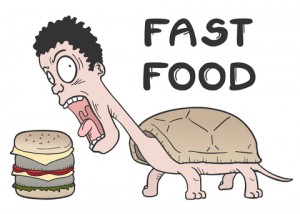 Although today’s thoughts were inspired by a very recent California Appellate Court’s decision concerning the wording of an arbitration clause in a non-real property agreement, they could well have come out of a dispute of an indemnity clause in a real property contract or, for that matter, out of many other kinds of contract provisions. What made the June 1, 2016 decision most striking was that the court found an arbitration provision to be inapplicable to the dispute at hand despite the extremely strong public policy in favor of arbitration. This is quite surprising because one should never bet against a court finding an arbitration provision enforceable even if supported by only the slimmest of reeds. [Read more…]
Although today’s thoughts were inspired by a very recent California Appellate Court’s decision concerning the wording of an arbitration clause in a non-real property agreement, they could well have come out of a dispute of an indemnity clause in a real property contract or, for that matter, out of many other kinds of contract provisions. What made the June 1, 2016 decision most striking was that the court found an arbitration provision to be inapplicable to the dispute at hand despite the extremely strong public policy in favor of arbitration. This is quite surprising because one should never bet against a court finding an arbitration provision enforceable even if supported by only the slimmest of reeds. [Read more…]
Broad, Narrow, Whatever! Do You Write Right?
How Do You Make A Turtle Fast? Take Away Its Food.
 Ambiguity: am·bi·gu·i·ty (ambəˈɡyo͞owədē/) – noun – uncertainty or inexactness of meaning in language. Secondary meaning: what we write into our agreements so that generations of lawyers can send their children to law school.
Ambiguity: am·bi·gu·i·ty (ambəˈɡyo͞owədē/) – noun – uncertainty or inexactness of meaning in language. Secondary meaning: what we write into our agreements so that generations of lawyers can send their children to law school.
Should we illustrate an ambiguity? Of course, what is Ruminations waiting for? Here is a disputed provision from the property purchase agreement in front of a United States District Court whose May 19, 2016 decision can be read by clicking HERE.
Buyer expressly releases Seller and agrees to waive all rights that it may have to seek contribution from Seller for any response costs or claims that may arise as a result of the actions or inactions of Seller and any previous owner, operator or third party on or with respect to the Property relating to Hazardous Substances.
Now, here’s the story, very little of which will be found in the court’s decision. An aluminum producer operated a factory in ten story, reinforced concrete building adjacent to a serious river. Its manufacturing process required furnaces to heat aluminum billets to soften them for shaping. The billets (and other items) were moved with fork-lift trucks. Those trucks had hydraulic lifts. Normal hydraulic fluid has a relatively low flash point, making use of the forklifts near the furnaces “unwise.” [Read more…]
PrintFor What Did You Intend To Indemnify? Choose Your Words Carefully!
 Today, we’re going to discuss two legal issues, one old and one new. The old one has to do with the use of extrinsic evidence, but with an interesting twist. “Extrinsic” means information coming from the “outside,” in our business (agreements, such as a lease), that means information from what was said or what was written before or at the same time the document was signed, but didn’t show up in the document itself.
Today, we’re going to discuss two legal issues, one old and one new. The old one has to do with the use of extrinsic evidence, but with an interesting twist. “Extrinsic” means information coming from the “outside,” in our business (agreements, such as a lease), that means information from what was said or what was written before or at the same time the document was signed, but didn’t show up in the document itself.
The second, and the one that has generated a little bit of “buzz,” has to do with the scope of a promise to indemnify someone.
For those readers who like “primary” material, take a look at the California Court of Appeal Order published on December 7, 2015 in the case of Hot Rods, LLC v. Northrop Grumman Systems Corporation. It can be seen by clicking HERE. [Read more…]
PrintBut, Not Everyone Can Get Away With Fraud By Clever Drafting
 Today, we continue our story of how to get away with fraud and deception. For those of you who were, as the Brits say, on “Holiday” last week (yes, England and the United States, two nations separated by a common language), you can catch up by clicking HERE.
Today, we continue our story of how to get away with fraud and deception. For those of you who were, as the Brits say, on “Holiday” last week (yes, England and the United States, two nations separated by a common language), you can catch up by clicking HERE.
Last week, we described how the seller of a company was able to hide behind an agreement’s provision wherein the buyer agreed that it was relying only on the information and representations recited in the agreement. Then, by signing the agreement on the day of closing, it could only complain about what happened between signing and closing. At best, that was a few minutes or so. Perhaps our readers accepted that as fair because the buyer was carefully monitoring the company’s revenues for March of 2012, the critical “test” month. It knew that the sales figures were somewhat implausible and should have known that the “last minute” jump in revenue was “strange.” Maybe, that’s why the Delaware Chancery Court was unwilling to parcel out a little of the “equity” for which chancery courts were developed. (OK, that explanation is a stretch, but we’re not ready to concede that the words “justice” and “business” are in different dictionaries. But, how about the rest of last week’s story?) [Read more…]
PrintHow To Write Your Agreements So As To Get Away With Fraud
 Court opinions coming out of the Delaware Chancery Court are a delight to read. They are almost always clear and incisive. They are important and influential. That court doesn’t often “see” real estate disputes, but that doesn’t mean its work is irrelevant to our chosen day jobs. One such decision, published on November 24, does an incredible job of dealing with an agreement’s “we didn’t rely on any representations you don’t find in the text of this agreement” provision and that agreement’s “integration” or “merger” clause. As a bonus, it sheds some light on how and whether the fairly standard indemnification provision covers damages directly incurred by the indemnified party (a “first” party), or just for claims against the indemnified party by a “third party.” Unless you go directly to the Court’s written decision, you’ll need to keep reading if you want the answers [to all but the “indemnification” part; for that, you’ll need to wait until next week’s posting]. [Read more…]
Court opinions coming out of the Delaware Chancery Court are a delight to read. They are almost always clear and incisive. They are important and influential. That court doesn’t often “see” real estate disputes, but that doesn’t mean its work is irrelevant to our chosen day jobs. One such decision, published on November 24, does an incredible job of dealing with an agreement’s “we didn’t rely on any representations you don’t find in the text of this agreement” provision and that agreement’s “integration” or “merger” clause. As a bonus, it sheds some light on how and whether the fairly standard indemnification provision covers damages directly incurred by the indemnified party (a “first” party), or just for claims against the indemnified party by a “third party.” Unless you go directly to the Court’s written decision, you’ll need to keep reading if you want the answers [to all but the “indemnification” part; for that, you’ll need to wait until next week’s posting]. [Read more…]
What Kind Of Help To A Tenant Is Self-Help? Part 3 (Whew, The Finale)
 Enough with the “self-help” already, but not before we address every reader’s favorite commodity – “money.” When a tenant does what a landlord is required to do, but didn’t (or a landlord does what the tenant should have done, but didn’t), the motive isn’t charity. Whatever was “self-helped” has to be at the expense of the non-performing party.
Enough with the “self-help” already, but not before we address every reader’s favorite commodity – “money.” When a tenant does what a landlord is required to do, but didn’t (or a landlord does what the tenant should have done, but didn’t), the motive isn’t charity. Whatever was “self-helped” has to be at the expense of the non-performing party.
Just because repayment is expected and deserved, no one should be expected to write a blank check, even if that signatory brought about the situation itself. The work that was done should be necessary and the cost of doing it should be reasonable under the circumstances. That’s a two-part test that needs to “passed” before the non-performing party should be obligated to pay up. One the test taker (the self-help exercising party) gets a passing grade, the non-performing party should make its payment within a short period of time. The amount owed should be treated as if it were an “extension” of credit; and the time for payment should be based on reasonable administrative needs. Ten to twenty days should be appropriate in all but the most unusual of circumstances. [Read more…]
PrintOh No, Not Another Change To What It Means To Be An Additional Insured!
 Hard as we try to “mix it up” and meter out our ramblings about insurance concepts affecting, landlords, tenants, and lenders, the insurance industry makes it pretty hard to do so. We were planning to Ruminate over purchase and expansion options this week and then Builders Risk insurance the week after that, but the ISO’s (Insurance Services Office’s) promulgation of some revised forms effective April 1 forced our hand.
Hard as we try to “mix it up” and meter out our ramblings about insurance concepts affecting, landlords, tenants, and lenders, the insurance industry makes it pretty hard to do so. We were planning to Ruminate over purchase and expansion options this week and then Builders Risk insurance the week after that, but the ISO’s (Insurance Services Office’s) promulgation of some revised forms effective April 1 forced our hand.
Ruminations sees two changes of interest to the leasing industry and they affect: (a) additional insureds; and (b) those who serve liquor or allow its on-premises consumption. We also see some ways to change our documents to counteract the effect of some of these changes. [Read more…]
Print

Recent Comments